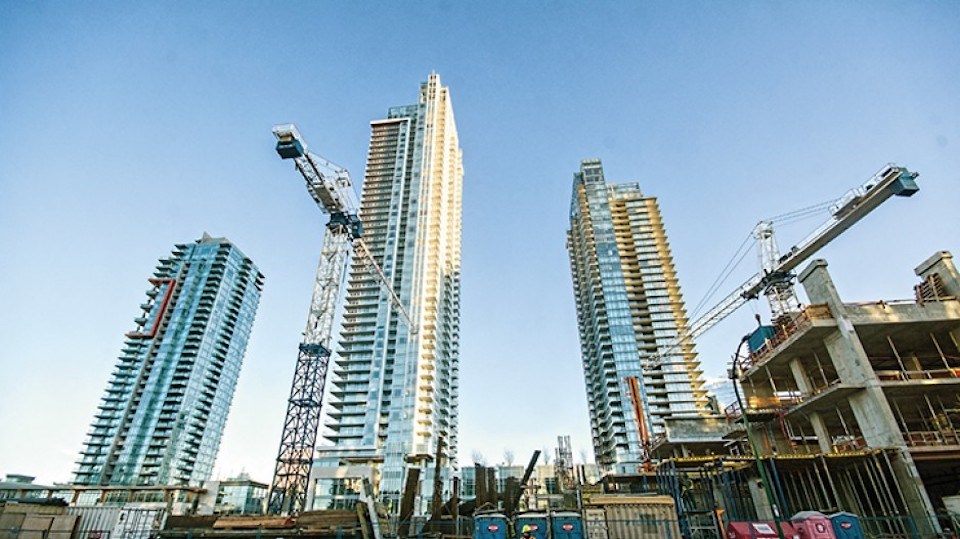Bolstered by a white-hot housing market and global demand for commodities, B.C.’s economic growth led the big provinces last year. Just don’t expect that pace to keep up in 2022, say economists at RBC.
The bank is forecasting the West Coast economy will expand 4.2 per cent this year – down from 2021’s 5.9 per cent growth. Last year B.C. registered the highest rate of economic growth among the four largest provinces, and second in Canada only to Prince Edward Island.
Economists Robert Hogue and Carrie Freestone said in their report Tuesday that B.C. will fall into the “middle of the pack” this year, along with Ontario (+4.1 per cent) and Quebec (+3.6 per cent).
Instead, Saskatchewan (+6 per cent), Alberta (+5.7 per cent) and Manitoba (+4.8 per cent) will be taking the lead as the housing market cools in B.C. and Ontario.
“We expect rising interest rates will further moderate home resale activity in the period ahead and broaden the cooling effect to other regions. Rapidly deteriorating affordability – especially in Canada’s most expensive markets – will make it increasingly difficult to sustain recent property values,” the RBC economists said in their analysis.
“In fact, we believe home prices have already reached a tipping point in several markets in Ontario and British Columbia. Slower activity will tamp down the substantial contribution the housing sector made to economic growth during the pandemic.”
The average Multiple Listing Service (MLS) residential price in B.C. was $1.065 million in April, according to the latest data from the B.C. Real Estate Association. That’s up 12.9 per cent from $943,765 during the same month a year ago.
MLS residential sales in B.C. are projected to decline to 97,240 units this year, down 22 per cent from 2021’s record high, according to the BCREA’s latest forecast released May 31.
And MLS residential sales are forecast to fall an additional 12.4 per cent to 85,150 units next year.
Meanwhile, RBC’s report forecasts the province having the lowest rate of inflation in Canada once the 2022 numbers are tallied: 5.4 per cent vs. the national average of 5.8 per cent.
Inflation sits at 6.7 per cent as of April – the most recent month for which Statistics Canada has released data – on the West Coast.
Hogue and Freestone “expect the rate of inflation to gradually subside across Canada later this year as energy prices stabilize, higher interest rates temper consumer demand and a cooling housing market ease pressure on shelter costs.”
Their forecast also predicts capital investment in the resources sector, such as the construction of major LNG projects, will continue to boost the province’s economy.
—With a file from Frank O’Brien, Western Investor



